Related Research Articles

Troy is a city in and the county seat of Pike County, Alabama, United States. It was formally incorporated on February 4, 1843.

Augustus Hill Garland was an American lawyer and Democratic politician from Arkansas, who initially opposed Arkansas' secession from the United States, but later served in both houses of the Congress of the Confederate States and the United States Senate, as well as becoming the 11th governor of Arkansas (1874–1877) and the 38th attorney general of the United States (1885–1889). He wrote several books.

Claiborne Fox Jackson was an American politician of the Democratic Party in Missouri. He was elected as the 15th Governor of Missouri, serving from January 3, 1861, until July 31, 1861, when he was forced out by the Unionist majority in the legislature, after planning to force secession of the state.
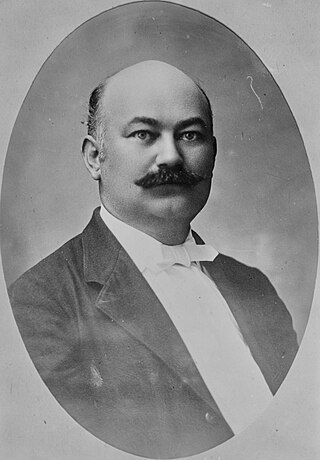
Charles Henderson was an American businessman serving as the 35th Governor of Alabama from 1915 to 1919 and a member of the Democratic Party. Before serving as governor, Henderson was mayor of Troy, Alabama from 1886 to 1906 and played a role in Troy's business and civic development. After his term as governor, Henderson remained active in the community. In 1937, after a bout with influenza, Henderson suffered a stroke and died at age 76. The public high school and middle school in Troy bear his name.
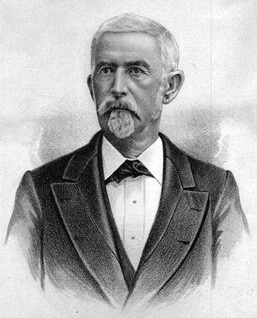
Edward Asbury O'Neal was a Confederate officer during the American Civil War and the 26th Governor of Alabama.
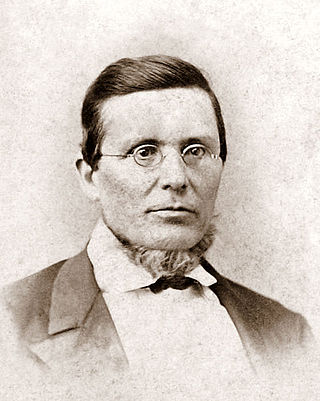
Thomas Hill Watts Sr. was the 18th Governor of the U.S. state of Alabama from 1863 to 1865, during the Civil War.

Jeremiah Clemens was a U.S. senator and novelist from the state of Alabama. He was elected to fill the vacancy left by the death of Dixon Hall Lewis, and served from November 30, 1849, to March 3, 1853. Clemens was the author of Tobias Wilson, one of the first American Civil War novels, and he was also one of the earliest writers of Western novels.

Jackson Morton was an American politician. A member of the Whig Party, he represented Florida as a U.S. Senator from 1849 to 1855. He also served as a Deputy from Florida to the Provisional Congress of the Confederate States from 1861 to 1862.
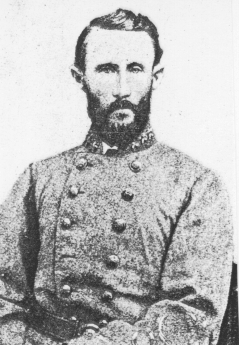
Alfred Marmaduke Hobby was a famous Texas merchant, politician, Confederate officer, and poet. He was born in Macon, Georgia, in 1836, the son of Martin and Anna Elizabeth (Slade) Hobby. Hobby's nephew is William P. Hobby, governor of Texas from 1917 to 1921. His grandnephew William P. Hobby, Jr., was lieutenant governor of Texas 1973-91.

Alabama was central to the Civil War, with the secession convention at Montgomery, the birthplace of the Confederacy, inviting other slaveholding states to form a southern republic, during January–March 1861, and to develop new state constitutions. The 1861 Alabaman constitution granted citizenship to current U.S. residents, but prohibited import duties (tariffs) on foreign goods, limited a standing military, and as a final issue, opposed emancipation by any nation, but urged protection of African-American slaves with trials by jury, and reserved the power to regulate or prohibit the African slave trade. The secession convention invited all slaveholding states to secede, but only 7 Cotton States of the Lower South formed the Confederacy with Alabama, while the majority of slave states were in the Union. Congress had voted to protect the institution of slavery by passing the Corwin Amendment on March 4, 1861, but it was never ratified.

Texas declared its secession from the Union on February 1, 1861, and joined the Confederate States on March 2, 1861, after it had replaced its governor, Sam Houston, who had refused to take an oath of allegiance to the Confederacy. As with those of other states, the Declaration of Secession was not recognized by the US government at Washington, DC. Some Texan military units fought in the Civil War east of the Mississippi River, but Texas was more useful for supplying soldiers and horses for the Confederate Army. Texas' supply role lasted until mid-1863, when Union gunboats started to control the Mississippi River, which prevented large transfers of men, horses, or cattle. Some cotton was sold in Mexico, but most of the crop became useless because of the Union's naval blockade of Galveston, Houston, and other ports.
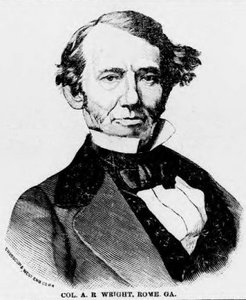
Augustus Romaldus Wright was an American politician and lawyer, who briefly served against the United States as a colonel in the Confederate States Army during the American Civil War. He resigned his commission to serve in the Confederate Congress.

During the American Civil War, Arkansas was a Confederate state, though it had initially voted to remain in the Union. Following the capture of Fort Sumter in April 1861, Abraham Lincoln called for troops from every Union state to put down the rebellion, and Arkansas and several other states seceded. For the rest of the civil war, Arkansas played a major role in controlling the Mississippi River, a major waterway.
The Missouri Constitutional Convention of 1861–1863 was a constitutional convention held in the state of Missouri during the American Civil War. The convention was elected in early 1861, and voted against secession. When open fighting broke out between Pro-Confederate governor Claiborne Fox Jackson and Union authorities, and Union forces occupied the state capital, the convention formed a provisional state government, and functioned as a quasi-legislature for several years. The convention never did produce a new constitution; that task was delegated to a new convention, elected in 1864.
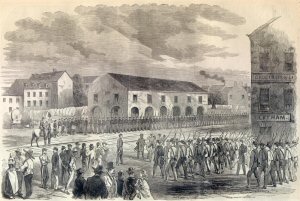
The city of Winchester, Virginia, and the surrounding area, were the site of numerous battles during the American Civil War, as contending armies strove to control the lower Shenandoah Valley. Winchester changed hands more often than any other Confederate city.

Zachariah Cantey Deas was a prominent Southern United States cotton broker and soldier. He served as a brigadier general in the Confederate States Army during the American Civil War.
Fox Henderson, Sr. (1853–1918) was a businessman and banking entrepreneur from Troy, Alabama.
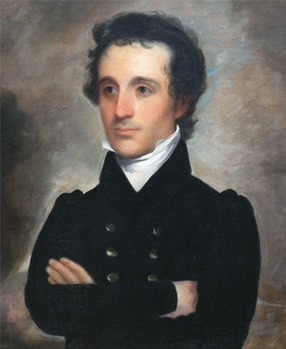
William Henry Chase was a Florida militia colonel during the events in early 1861 that led to the American Civil War. On January 15, 1861, on behalf of the State and Governor of Florida, Colonel Chase demanded the surrender of Fort Pickens at Pensacola, Florida and of its U.S. Army garrison. Chase had designed and constructed the fort while he was a captain in the United States Army Corps of Engineers. Lieutenant Adam J. Slemmer, commander of the fort, refused the surrender demand. An informal truce between the administration of President James Buchanan and Florida officials, including their still sitting U.S. Senators, avoided military action at Pensacola until after the Battle of Fort Sumter in April 1861.
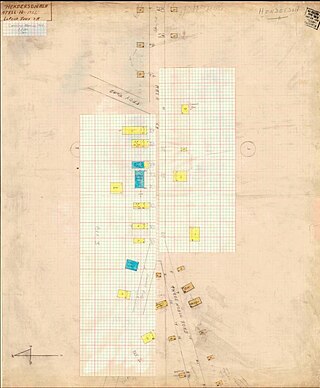
Henderson, also known as Gainers Store, is an unincorporated community in Pike County, Alabama, United States.